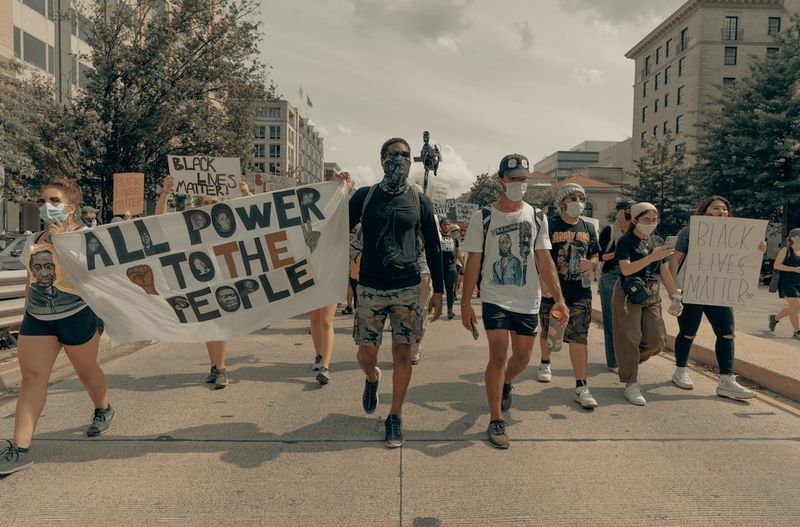Australia Rejects Constitutional Change in Voice to Parliament Referendum
On October 14, 2023, Australia rejected a proposed constitutional change to establish an Indigenous Voice to parliament. The outcome of the referendum, which saw every state vote “No,” has been met with mixed reactions from politicians, activists, and the public. Prime Minister Anthony Albanese expressed his respect for the decision, while Opposition Leader Peter Dutton hailed it as a victory for the country.
Dissecting the Outcome
The defeat of the Voice referendum has sparked debate and analysis across the nation. While some argue that the rejection signifies a missed opportunity to address Indigenous disadvantage and give a platform to Australia’s First Nations people, others contend that the proposed advisory body lacked clarity and did not provide a comprehensive solution. It is clear that the referendum has highlighted the complexity and sensitivity surrounding Indigenous issues in Australia.
A Day of Sadness and a Call for Silence
The outcome of the referendum has been described as “a day of sadness” for many Indigenous Australians. Supporters of the Voice have called for a week of silence to grieve the result and reflect on its meaning and significance. In this time of reflection, it is important for all Australians to consider the consequences of this outcome and engage in open and respectful conversations about the path forward.
The Road to Reconciliation
Reconciliation is an ongoing process that requires concerted effort from both Indigenous and non-Indigenous Australians. While the Voice referendum did not succeed, it should serve as a catalyst for meaningful dialogue and action. It is essential that we continue to listen and engage with Indigenous Australians, addressing their needs and aspirations in a respectful and inclusive manner.
Creating Practical Outcomes
The gap in outcomes between Indigenous and non-Indigenous Australians remains a pressing issue. Moving forward, it is crucial to focus on practical solutions that improve the lives of Indigenous Australians, particularly those in remote and marginalized communities. This includes addressing issues of law and order, boosting school attendance and employment opportunities, and working collaboratively to close the gap.
Restoring Faith in Politics
The outcome of the Voice referendum underscores the need to restore faith in politics. Prime Minister Anthony Albanese emphasized the importance of fulfilling promises and restoring trust in the political process. It is incumbent upon our leaders to demonstrate integrity and transparency, delivering on commitments made to the Australian people.
Editorial: The Voice Referendum – A Missed Opportunity
The rejection of the Voice to parliament referendum represents a missed opportunity for Australia to address historical injustices and empower Indigenous voices within our political system. While it is important to respect the democratic process and the decision of the majority, it is equally essential to acknowledge the systemic barriers that hinder progress and perpetuate disadvantage.
The Voice proposal offered a chance for Australia to take a significant step towards reconciliation and to build a more inclusive and equitable society. By establishing an advisory body that would enable Indigenous Australians to meaningfully contribute to decision-making processes, we could have moved closer to ensuring that the voices of our First Nations people are heard and respected.
Although the referendum did not succeed, we must not lose sight of the underlying issues that it sought to address. The high rates of Indigenous disadvantage, including lower life expectancy, higher incarceration rates, and limited access to basic services, remain pressing concerns that require urgent attention.
Furthermore, the referendum outcome should not discourage further dialogue and engagement between Indigenous and non-Indigenous Australians. Open and respectful conversations are crucial for understanding diverse perspectives and finding common ground. Only through genuine collaboration and partnership can we begin to bridge the gap that divides our nation.
Advice: Moving Forward
As we move forward after the Voice referendum, it is vital for all Australians to continue learning about our shared history, acknowledging the ongoing impact of colonization, and actively supporting efforts to achieve reconciliation. This can be done in various ways, including:
- Engage in respectful conversations with Indigenous Australians and listen to their stories and experiences.
- Support Indigenous-led initiatives and businesses, contributing to economic empowerment and self-determination.
- Educate ourselves and others on the achievements, contributions, and rich cultural heritage of Indigenous Australians.
- Advocate for policies and programs that address the systemic barriers faced by Indigenous communities.
- Participate in events and activities that promote understanding, reconciliation, and unity.
By actively working towards reconciliation, we can foster a more inclusive and equitable Australia where the voices and aspirations of Indigenous Australians are given the respect and platform they deserve.

<< photo by Clay Banks >>
The image is for illustrative purposes only and does not depict the actual situation.
You might want to read !
- From the Bells of Democracy: Unraveling the Voice Referendum for Aussies
- “Will the Voice Referendum Signal the End of an Era in Australian Voting?”
- Voice Referendum: Port Fairy Defies the Norm with Overwhelming Yes Vote
- “America’s Foreign Policy Agenda: Insights from Secretary Antony J. Blinken’s Press Availability”
- Tragic Loss: Australian Grandmother Galit Carbone Fatally Struck Down in Israel
- From Paradise to Hell: The Haunting Transformation of an Israeli Kibbutz in a Hamas Attack
- “Mission: Insurable – Tom Cruise’s Risky Business Ensures Stunt Safety in Mission: Impossible 7”
- Decoding the Kiwi Democracy: Unraveling the New Zealand Election 2023
- Portugal’s Groundbreaking Green Hydrogen Auction: Paving the Way for Sustainable Energy
- “Fiery Press Conference Raises Doubts on Fate of Intense Rivalry”
- Landmark Indigenous Voice Referendum: Australians Exercise their Right to Vote




